At all costs, the Christian must convince the heathen and the atheist that God exists, in order to save his soul. At all costs, the atheist must convince the Christian that the belief in God is but a childish and primitive superstition, doing enormous harm to the cause of true social progress. And so they battle and storm and bang away at each other. Meanwhile, the Taoist Sage sits quietly by the stream, perhaps with a book of poems, a cup of wine, and some painting materials, enjoying the Tao to his hearts content, without ever worrying whether or not Tao exists. The Sage has no need to affirm the Tao; he is far too busy enjoying it!
When I first came across the Taoist writings, I was infinitely delighted. I did not feel that I was reading something strange or exotic, but that I was reading the very thoughts I have had all my life, only expressed far better than I have ever been able to express them. To me, Taoism means a state of inner serenity combined with an intense aesthetic awareness. Neither alone is adequate; a purely passive serenity is kind of dull, and an anxiety-ridden awareness is not very appealing. A Chinese friend of mine (of the modern school) recently criticized Taoism as a philosophy of having ones cake and eating it too. I replied, What could be better? He responded, But one cant have ones cake and eat it too! This is precisely where we disagree! All my life I have believed that one can have ones cake and eat it too. Hence I am a Taoist.
Actually, I came to Taoism first through Zen-Buddhism. It took me quite a while to realize to what extent Zen has combined Taoism and Buddhism, and that it was primarily the Taoistic elements which appealed to me. The curious thing about Zen is that it first makes ones mouth water for this thing called Satori (enlightenment) and then straightaway informs us that our desire for Satori is the very thing which is preventing us from getting it! By contrast, the Taoist strikes me as one who is not so much in search of something he hasnt, but who is enjoying what he has.
This is more than a book on Chinese philosophy; it consists of a series of ideas inspired by Chinese philosophy. Though the Taoist viewpoint may be central, this book as a whole treats of a wide variety of subjectsit is really a book on life in general. It is dedicated to my wife, my brother and sister, my puppies, my students, my friends, my readers, and everyone else.
Elka Park, New York R AYMOND M. S MULLYAN
January 17, 1977
CHINESE PHILOSOPHY IN A NUTSHELL
A mathematician friend of mine recently told me of a mathematician friend of his who everyday takes a nap. Now, I never take naps. But I often fall asleep while readingwhich is very different from deliberately taking a nap! I am far more like my dogs Peekaboo, Peekatoo and Trixie than like my mathematician friend once removed. These dogs never take naps; they merely fall asleep. They fall asleep wherever and whenever they choose (which, incidentally is most of the time!). Thus these dogs are true Sages.
I think this is all that Chinese philosophy is really about; the rest is mere elaboration! If you can learn to fall asleep without taking a nap, then you too will become a Sage. But if you cant, you will find it not as easy as you might think. It takes discipline! But discipline in the Eastern, not Western style. Eastern discipline enables you to fall asleep rather than take a nap; Western discipline has you do the reverse. Eastern discipline trains you to allow yourself to sleep when you are sleepy; Western discipline teaches you to force yourself to sleep whether you are sleepy or not. Had I been Laotse, I would have added the following maximwhich I think is the quintessence of Taoist philosophy:
The Sage falls asleep not because he ought to
Nor even because he wants to
But because he is sleepy.
THE TAO
There is something blurred and indistinct
Antedating Heaven and Earth.
How Indistinct! How Blurred!
Yet within it are forms.
How dim! How confused!
Quiet, though ever functioning.
It does nothing, yet through it all things are done.
To its accomplishment it lays no credit.
It loves and nourishes all things, but does not lord it over them.
I do not know its name,
I call it the Tao.
Thus writes Laotse some twenty-five hundred years ago. I think this is as good an introductory description of the Tao as can be desired. It raises many interesting questions: Just what is the Tao? How should one define the Tao, or does the Tao elude any possible definition? If it exists, what is it like? What are its properties?

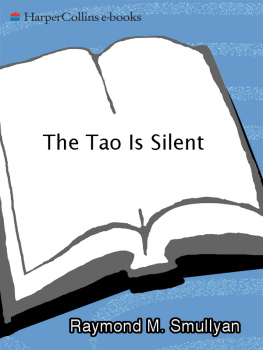
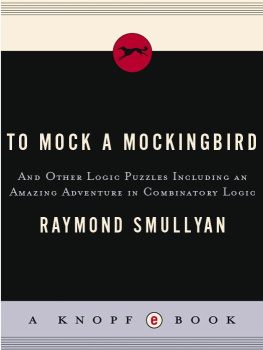
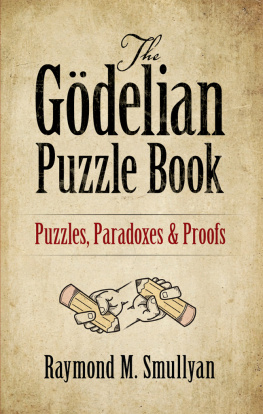

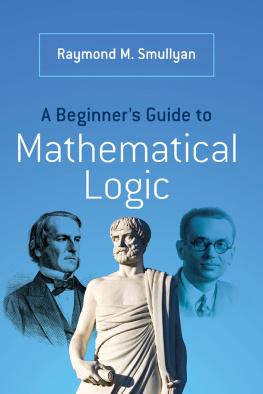
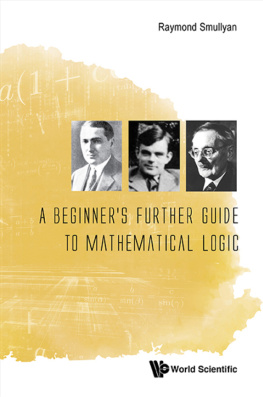
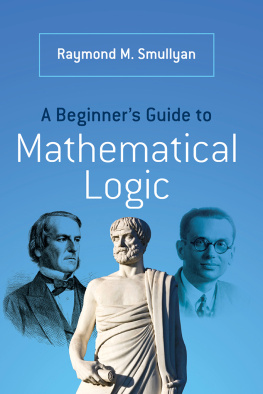
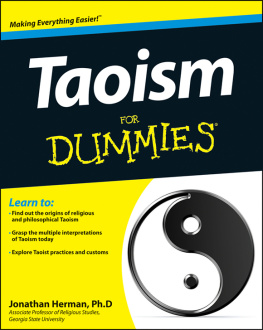



 and HarperOne are trademarks of HarperCollins Publishers.
and HarperOne are trademarks of HarperCollins Publishers.